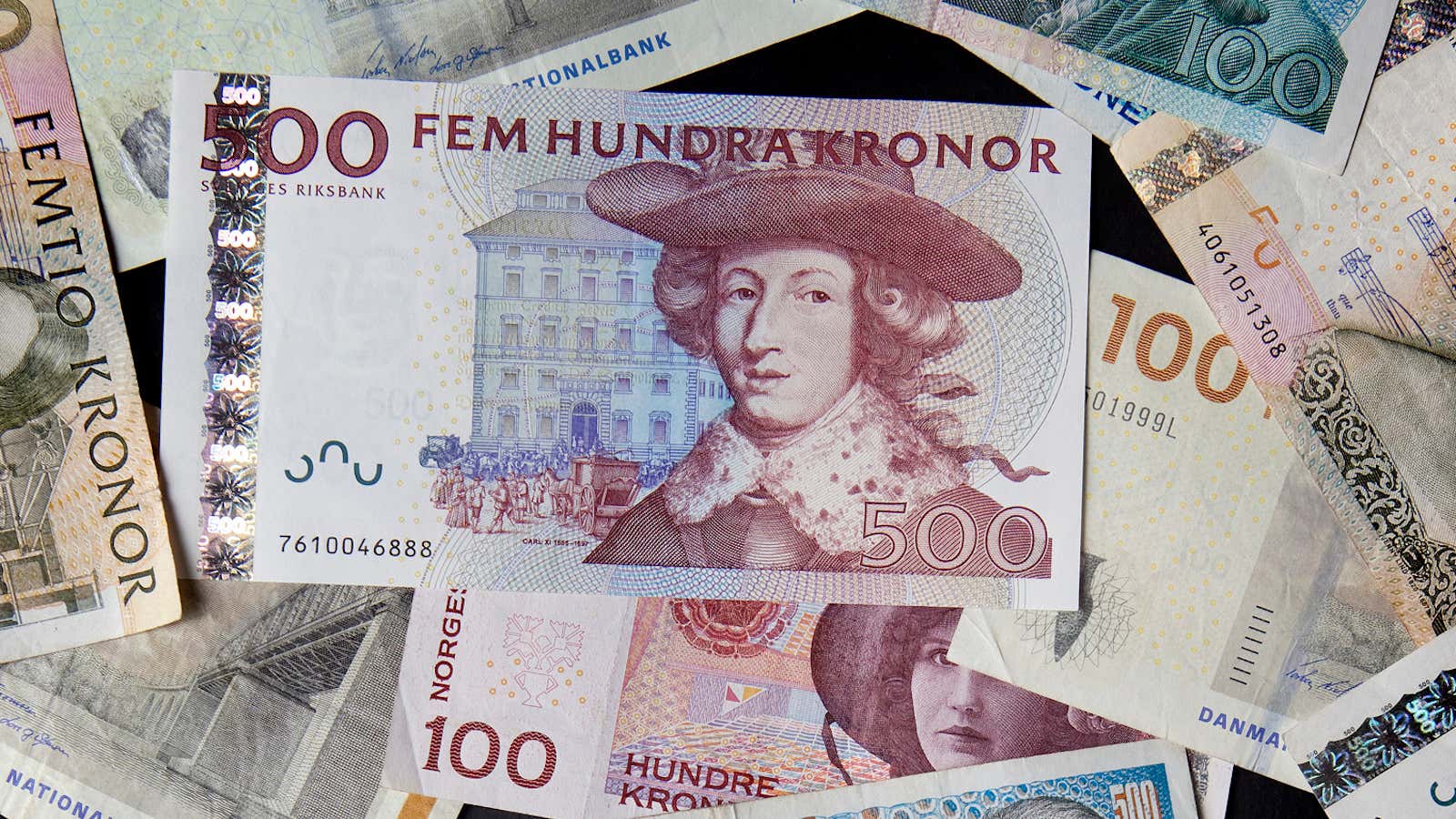There’s a conspicuous lack of cash on Sweden’s streets.
So ubiquitous are digital payments in the country that attempting a paper money transaction at a Swedish bank might provoke a suspicious stare or a report to the police. That’s according to Niklas Arvidsson, a professor at Stockholm’s KTH Royal Institute of Technology.
Arvidsson, who specializes in industrial economics and management, found in a recent study that Sweden is on its way to becoming the world’s first cash-free society. He attributed the disappearance of Swedish banknotes to the country’s embrace of new technologies, the growth of mobile payment systems, and a governmental crackdown on corruption, which helps citizens feel safe about electronic money.
“Our use of cash is small, and it’s disappearing rapidly,” Arvidsson says. Circulation figures from the Riksbank, Sweden’s central bank, back up his assertion.
The country has actually been inching toward a cashless system for many years now. From bus fares to street magazines, digital payments are accepted almost everywhere; the Swedish Federation of Trade also also claims it is “leading the world in cashless trading.”
But data from the European Central Bank indicate that Swedes, while enthusiastic about bank cards and digital payments, still regularly withdraw quite a bit of money from ATMs. Surveys from the Riksbank show that for transactions under 100 kronor, 41% of people still prefer to use cash. And the Swedish National Pensioners’ Organization, which represents some 400,000 of the country’s elderly, says 7% of its members never use bank cards.
Obstacles that stand in the way of going totally cash-free include rising fraud rates, discomfort about personal electronic footprints, the problem of accommodating tourists, and reliability. Case in point—The Guardian reports that a cashless Swedish music festival this summer sparked chaos when the payment system broke down.
There’s also the chance that, before Sweden cinches the title as the world’s first cashless society, other countries might get there first.
Arvidsson himself has admitted that Sweden might never be entirely cash-free: a certain sentimentality will always be tied to the country’s bank notes, even if people don’t want to use them.
